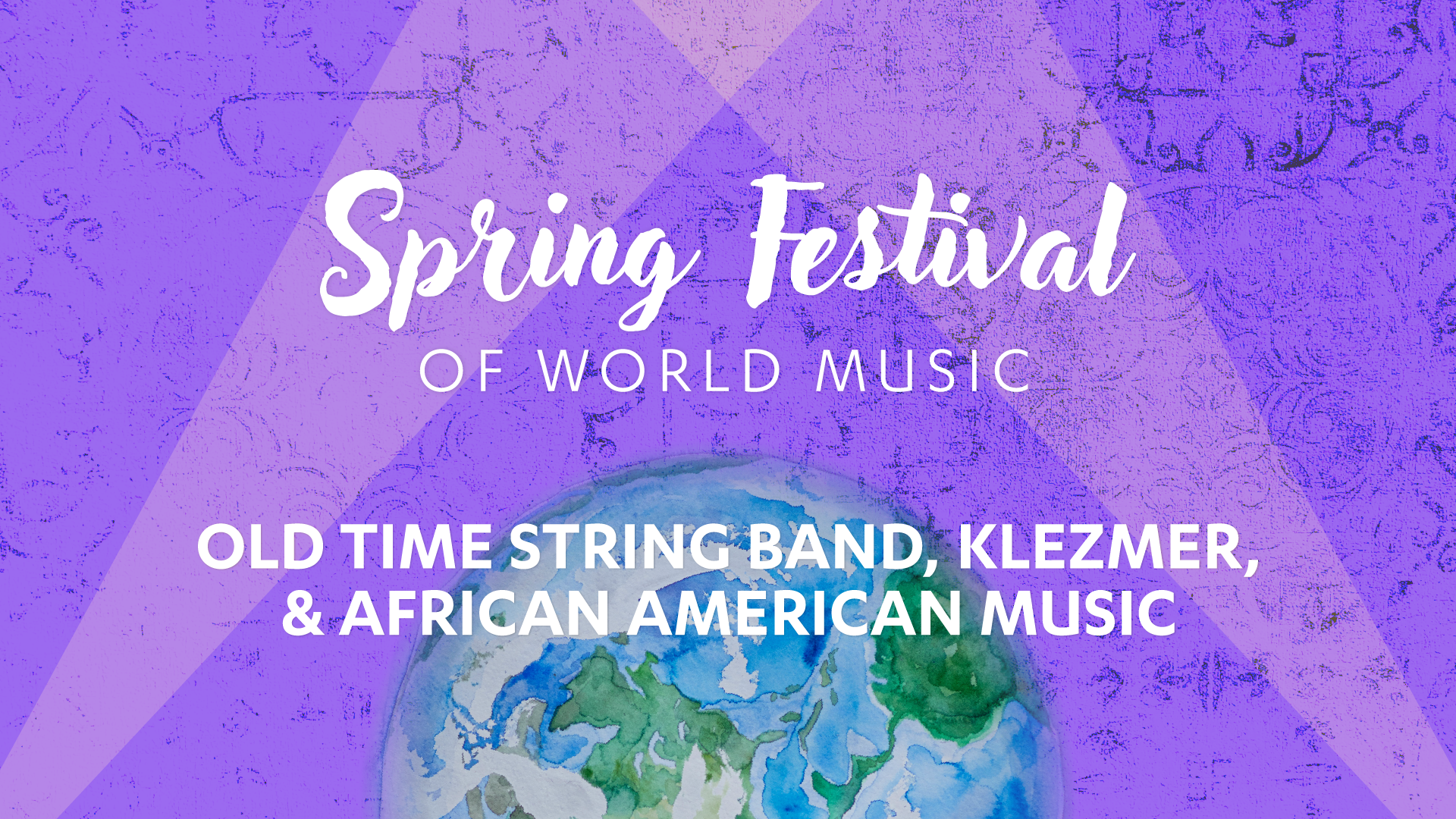The Old Time String Band, Klezmer Music Ensemble, and African American Music Ensemble showcase music from these traditions on the same stage.
The Old-Time String Band Ensemble, formerly the Anglo-American Ensemble, performs traditional music of rural America. Old-Time is a genre of music that has roots in very old traditional music cultures. It is as much African-American in nature as it is Scots-Irish. This ensemble will delve into the exciting old-time sub-genres of Appalachian fiddle and banjo music, Mid-West fiddle tunes, North Carolina and Georgia string band music, Cajun/Creole fiddle, traditional bluegrass, country blues and jug band music to name a few. This is the early country music of America in its crooked, colorful, droney, funky, lonesome, soulful, danceable, and back porch glory.
The Klezmer Music Ensemble focuses on the performance and style of the Klezmer musical traditions. The ensemble learns from active listening and imitation of a vast array of recordings beginning with pre-WWII European and American Golden Age klezmer, continuing into the klezmer revival and subsequent renaissance of the Seventies, and concluding with more contemporary experimental recordings. Repertoire from the Yiddish Theatre and other Jewish Eastern European traditions such as niggunim [wordless songs] will also be explored. In addition to performing, students will be introduced to key concepts in Jewish culture and history, giving context to the music.
The African American Music Ensemble performs a diverse range of vocal repertoire including spirituals, gospel, freedom/Civil Rights songs, and other works by African-Diasporic composers, including anthems, hymn arrangements, and various forms of contemporary choral music.
Continuing a tradition begun in 1960, the Department of Ethnomusicology draws on its incredible collection of world musical instruments to present its annual Spring Festival of World Music. It's an opportunity for student ensembles to perform and share traditional musics from around the world as they master their instruments.
